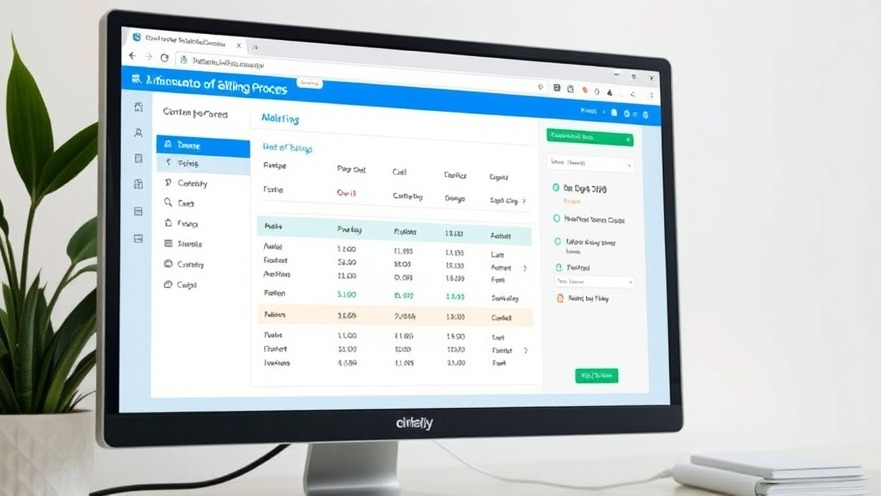
The Promises of AI in Healthcare Billing
As technology continues to infiltrate every facet of our lives, the healthcare sector is no exception. Artificial Intelligence (AI) has been heralded as a revolutionary force capable of transforming billing processes by improving efficiency, reducing errors, and enhancing financial outcomes. For instance, the global AI healthcare market was valued at an impressive $22.45 billion in 2023, with a forecasted growth rate of 36.4% annually through 2030. However, such promises come with caveats, notably in the realm of reality versus hype.
Understanding the Current Role of AI in Revenue Cycle Management
AI's current utilization in revenue cycle management (RCM) is to enhance the capacities of human personnel rather than fully automate billing processes. AI technologies, such as predictive analytics, can identify potential claim denials before they happen and flag anomalous billing patterns. This support helps healthcare providers focus on value-driven services while minimizing costly errors.
The Challenges in Implementing AI Solutions
Despite the positive outlook, the path to successful AI integration in healthcare billing comes fraught with challenges. Data security emerges as a major concern, as systems must navigate complex regulations while safeguarding sensitive patient information. Additionally, many billing departments operate legacy systems that resist seamless integration with modern AI technologies. Continuous retraining of AI models is also necessary to keep pace with ever-evolving regulatory demands, often leading to increased operational costs.
The Importance of a Strategic Approach in AI Integration
To maximize the benefits of AI, healthcare practices must adopt a strategic approach that considers workforce augmentation over simple automation. Investments in training staff to work alongside AI capabilities can lead to improved outcomes and efficiencies within billing departments. Only through careful planning and assessment can practices harness AI's potential effectively.
Future Insights: What Lies Ahead for AI in Healthcare Billing?
Looking ahead, the importance of AI in healthcare billing will undoubtedly increase, but full automation remains a distant prospect. As delivery systems evolve, there are opportunities for AI to expand its supportive role in areas such as patient interaction and real-time billing adjustments. Practices should prepare to adapt by exploring partnerships with AI providers willing to invest in tailored solutions.
Unique Value of Understanding AI's Limitations
Being informed about what AI can and cannot do empowers concierge medical practice owners to set realistic expectations for their operations. Familiarity with AI’s limitations helps practices refine their strategies effectively, ultimately leading to improved patient satisfaction and financial health.
Decision-Making Tips: Leveraging AI Wisely
As you consider integrating AI into your billing processes, ask the following critical questions:
What specific billing problems am I trying to solve?
How will the chosen AI tools integrate with existing systems?
Are there measurable ROI expectations based on current workflow analysis?
Implementing well-thought-out answers to these inquiries will guide your implementation strategy toward success.
Conclusion: Embrace Innovation with Caution
AI holds significant promise for the future of healthcare billing, but it is essential to approach its integration with caution and informed expectations. By understanding AI's capabilities, constraints, and the potential roadblocks of data security and system compatibility, concierge practice owners can navigate this changing landscape effectively. As you explore AI solutions, prioritize a strategy that focuses on enhancing human expertise rather than fully replacing it. Addressing these pivotal aspects now will better position your practice for sustainable growth and excellence.
 Add Row
Add Row  Add
Add 




Write A Comment